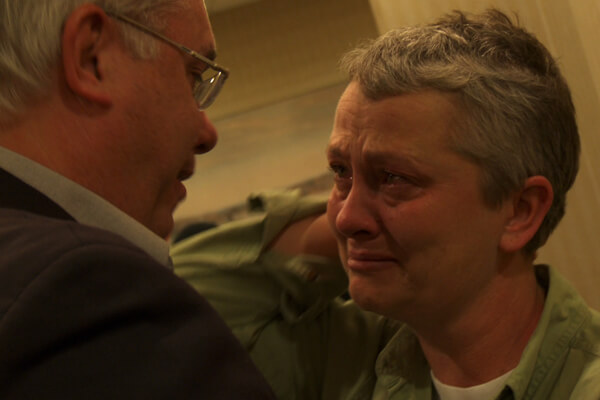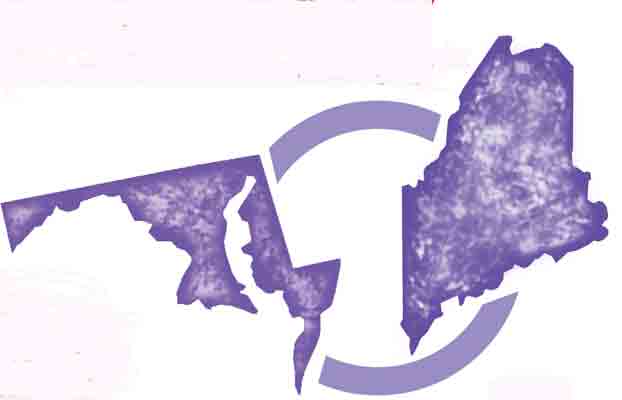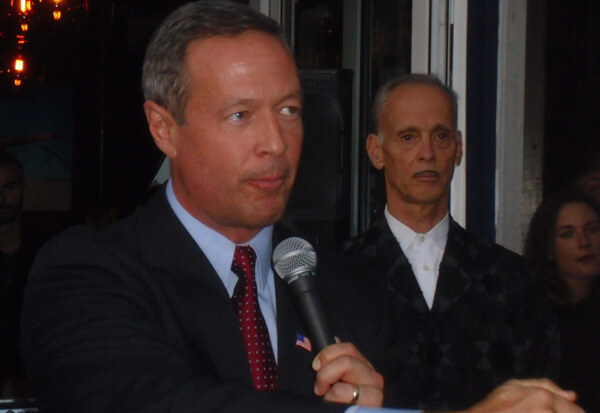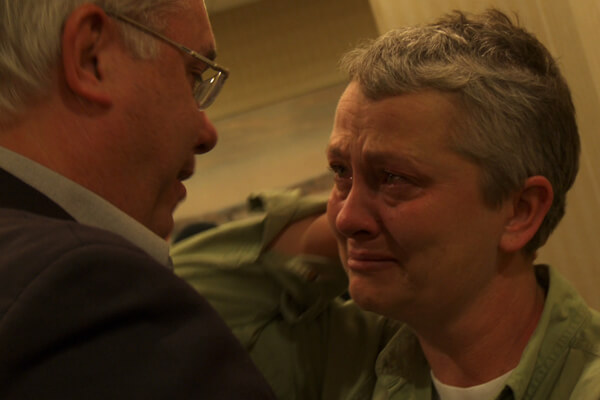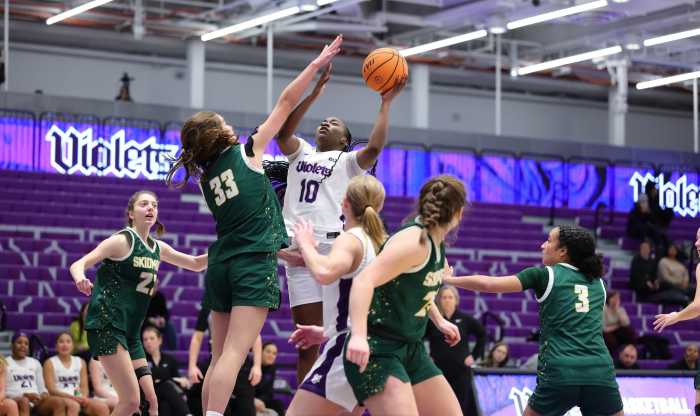On Election Night, the victories in Maryland and Maine were the first signs of the marriage equality sweep. | MICHAEL SHIREY
On 32 consecutive occasions since the 1990s, voters in states across the country have approved ballot measures — either statutes or constitutional amendments — barring gay and lesbian couples from the right to marry.
That streak was broken — decisively — on Election Night 2012. Voters in Maine acted affirmatively to enact marriage rights for same-sex couples. In Maryland and Washington State, efforts to overturn marriage equality laws approved earlier this year were rejected. And in Minnesota, anti-gay forces were unable to muster the 50 percent of total votes cast to amend the State Constitution to define marriage as the union of one man and one woman.
“Our huge, happy, and historic wave of wins last night signaled irrefutable momentum for the freedom to marry, with voters joining courts, legislatures, and the reelected president of the United States in moving the country toward the right side of history,” said Evan Wolfson, the president of Freedom to Marry. “The anti-gay opposition kept moving the goalposts and had as their last talking point that we could not win a popular vote on the freedom to marry.”
Wolfson has worked on the marriage equality issue for the past two decades, and while at Lambda Legal was involved in the first serious gay marriage litigation — in the Hawaii state courts. Freedom to Marry invested roughly $7 million in the ballot fights in the four states this year.
The Human Rights Campaign, the Washington-based LGBT lobby group, invested more than $6 million in the marriage effort this year and said it recruited several thousand volunteers across the four ballot states. Speaking about the victory in Washington, the last of the four races to be called, HRC president Chad Griffin said, “This victory rounds out a landslide sweep of all four marriage ballot measures this November… This win is a sure sign that momentum is on our side, and with the growing majority of Americans supporting marriage equality, more states will soon join Washington in protecting all families.”
For the National Organization for Marriage, the leading group fighting equal marriage rights and other partnership recognition measures for same-sex couples, the four defeats were bitter medicine. In the wake of pro-equality rulings by state courts in Massachusetts and elsewhere, activists affiliated with NOM argued that the definition of marriage should not be left to unelected judges. When New York and other states moved to enact gay marriage through the legislative process, they similarly cried foul.
Now, the NOM agenda has been rejected by voters in four states from coast to coast and in the heartland as well. The group moved quickly to disqualify even those referees.
In a written statement, Brian S. Brown, NOM’s president, after voicing disappointment that “our endorsed candidate for president, Mitt Romney” lost, said, “Even though marriage significantly out-performed the GOP ticket in each of these very liberal, very Democratic states, we also came up just short of the finish line. But make no mistake: we are disappointed, but we are not defeated! We are fighting for a true and just cause — God's institution of marriage… We knew long ago that we faced a difficult political landscape with the four marriage battles occurring in four of the deepest-blue states in America. As our opponents built a huge financial advantage, the odds became even steeper.”
Freedom to Marry and HRC noted other positive signs for marriage equality in Tuesday’s results. In Iowa, right-wing forces failed in their effort to oust Justice David Wiggins, who joined the unanimous 2009 State Supreme Court gay marriage ruling. Two years ago, three other justices had been removed by voters. Democrats in Iowa also retained control of the State Senate, where Majority Leader Mike Gronstal has been an unshakable firewall against efforts to put an anti-marriage amendment on the ballot.
New Hampshire, where an effort to repeal that state’s 2009 marriage equality law failed earlier this year, elected a pro-marriage equality Democrat, Maggie Hassan, to succeed Democratic Governor John Lynch, who signed that law. Hassan defeated a Republican who is opposed to that law.
MARYLAND
Maryland Governor Martin O’Malley, with filmmaker John Waters looking on, addresses the crowd at a Manhattan marriage equality fundraiser. | GAY CITY NEWS
By a margin of nearly four percent, voters approved the marriage equality law signed by Democratic Governor Martin O’Malley earlier this year and later “referred” to voters after anti-gay forces mobilized in opposition.
The measure was approved in Baltimore, its suburbs, and the nearby suburbs of Washington, DC, but rejected in most other counties –– in western Maryland and on the state’s eastern shore. Marriage equality polled best (at nearly 66 percent) in affluent Montgomery County, adjacent to DC, in neighboring Howard County, and in Baltimore City, where it polled at just under 57 percent. The measure’s success in Baltimore and Prince George County near Washington, both heavily African-American areas, suggests that the law’s advocates succeeded in addressing concerns in the black community that opponents of California’s Proposition 8 in 2008 fell short on.
Defense of the marriage equality law was led by Marylanders for Marriage Equality, founded by O’Malley, HRC, Equality Maryland, 1199 Service Employees International Union, the NAACP of Baltimore, and the state’s chapter of the American Civil Liberties Union.
Josh Levin, who led the campaign, said, “This victory would not have been possible without the unparalleled leadership of Governor O’Malley, resolve of the LGBT caucus in the Legislature, and the full-court press by the Human Rights Campaign, which has been here day in and day out for more than a year working for full equality.”
The group raised $6 million.
MAINE
Darlene Huntress, Equality Maine’s public policy director, on the night in 2009 the state’s voters repealed its new marriage equality law. | FLY ON THE WALL PRODUCTIONS
In 2009, anti-gay forces succeeded in having the marriage equality law enacted that year put before the voters in November. After a hard-fought contest, in which some polls showed gay advocates leading, the bill was repealed 53-47 percent. On Tuesday, the marriage equality issue was turned on its head on the initiative of gay advocates, with the 2009 voter repeal effectively overturned, with an estimated 54-46 percent margin. Seven of the state’s 16 counties approved equal marriage rights, with an eighth county essentially tied. Two-thirds of the voters in Cumberland County, home to Portland, the state’s largest city, voted yes, but the issue polled well in coastal counties from the New Hampshire border northeast to Ellsworth.
The pro-equality Mainers United for Marriage was a coalition that claimed 200 partners, including HRC and Freedom to Marry, and thousands of volunteers.
In a written statement, its campaign manager, Matt McTighe said, “Three years ago, Maine made history as the first state to pass marriage through a state legislature and have it signed into law by the governor. Maine made history again this year when we became the first state to bring a citizen’s initiative to voters in support of the freedom to marry.” He added, “Tonight, here in Maine, we proved that voters can change their hearts and minds if we tell our stories and give our fellow citizens a personal connection to the countless families whose lives are impacted by this debate.”
WASHINGTON
By a nearly identical margin as in Maryland, voters in Washington State approved a gay marriage law signed earlier this year by Democratic Governor Christine Gregoire. Only six of the state’s 39 counties approved the law, but they were all in the populous northwestern area surrounding Seattle. Seattle’s King County and Jefferson County to its west both gave the measure more than 63 percent of their votes.
Washington United for Marriage, a coalition effort like Maryland’s that included HRC and Freedom to Marry, raised more than $12 million, the most of any state where marriage was contested this year. According to the Seattle Times, that total was more than five times what anti-gay forces raised. WUFM noted that its money came from 27,000 donors, 80 percent of them from Washington State. The group said the campaign knocked on 100,000 doors in the final week before Election Day and made 200,000 phone calls on November 5 and 6.
“We made history in so many ways,” said Zach Silk, WUFM’s campaign manager. “Our volunteers were engaged, fired up, and delivered. There has never been a ballot campaign in Washington that had this kind of breath and depth, from field to fundraising.
MINNESOTA
The state of Minnesota already has a law defining marriage as the union of one man and one woman, but in 2012, years after Republican Congresswoman Michele Bachmann, as a state legislator, got the ball rolling, anti-gay activists managed to get the issue on the ballot as a constitutional amendment. That effort was defeated 51-48 percent on Election Day.
Ten of the state’s 87 counties voted to defeat the marriage ban, seven of them in the Twin Cities metropolitan area, as well as areas in and around Duluth and Rochester. More than 60 percent of residents in Hennepin County, which includes Minneapolis, and Ramsey County, which includes St. Paul, voted no.
“This campaign has changed the course of politics in our state forever,” said Richard Carlbom, who led the effort for Minnesotans United for All Families, a coalition effort like that built in the other three ballot states. “Over the course of the last year and a half, we’ve sparked an honest, statewide conversation about why marriage matters and who should have the freedom to participate in it. Today, Minnesotans voted in favor of love, freedom, and fairness — because that’s what this state is about.”

